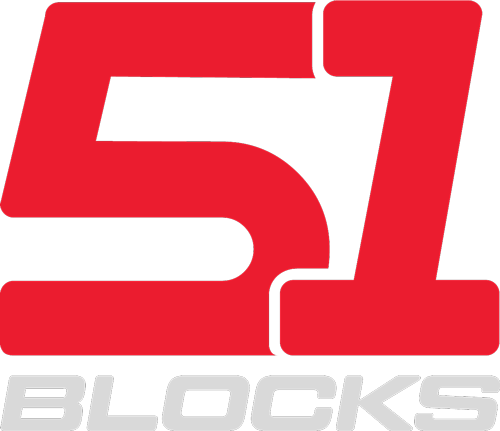In the interconnected world of 2023, where businesses strive to maintain competitive edges and countless moving parts harmoniously work behind the scenes, effective vendor relations management has emerged as a vital success criterion. Whether you are at the helm of a thriving multinational corporation or navigating your start-up through uncharted waters, managing your vendor relationships strategically is no longer optional but essential. What’s more, effective management can spell the difference between just surviving and truly thriving in today’s corporate arena. Ready to finesse your vendor relationships into strategic alliances? Let’s dive straight in and discover proven strategies that can power up your organizational prowess.
Effective management of vendor relationships begins with clear communication and understanding expectations. Other strategies include practicing rejection techniques, being firm but respectful, seeking multiple vendors, and building strong professional relationships. By following these best practices, businesses can improve trust, reduce costs, and expand product availability while retaining greater control over their operations.
Exploring the Vendor’s Role in your Business
When it comes to managing vendor relationships effectively, it’s crucial to have a clear understanding of the vendor’s role within your business. Vendors play a vital part in the supply chain and provide essential goods or services that contribute to your company’s success. They can range from suppliers of raw materials for manufacturing to service providers for various aspects of your operations.
For instance, imagine you own a restaurant, and you rely on a produce vendor for fresh ingredients. Your vendor plays a significant role in ensuring the quality and timely delivery of those ingredients so that you can provide exceptional meals to your customers.
Understanding the vendor’s role goes beyond mere transactional connections. It involves developing a partnership where both parties work towards achieving common goals.
Now that we have explored the importance of understanding the vendor’s role, let’s dive into the significance of mutual value recognition.
Importance of Mutual Value Recognition
Imagine a dance partnership where each dancer has their unique strengths and contributes something valuable to create a beautiful performance. Similarly, in managing vendor relationships, recognizing and appreciating the value each party brings is essential for long-term success.
The notion of mutual value recognition involves acknowledging and respecting that both your business and the vendor’s business are crucial components of a mutually beneficial relationship. By recognizing this value, you foster a sense of collaboration and teamwork that strengthens the bond between both parties.
Let’s say you run an e-commerce clothing store, and you depend on multiple vendors for your merchandise. It is important to recognize that without these vendors supplying you with quality products, your store wouldn’t thrive. At the same time, as a reliable customer, you contribute revenue and sales volume to their business.
When there is mutual value recognition, trust and respect grow between both parties. This lays the foundation for open communication, flexibility in problem-solving, and a willingness to go the extra mile to support each other’s success.
Recognizing the value each party brings is just the beginning. In order to build and maintain successful vendor relationships, it’s essential to set clear expectations. Let’s explore this aspect further in the next section.
Setting Clear Expectations
In any business relationship, setting clear expectations is paramount to ensure smooth communication and avoid misunderstandings or disappointments down the line. When it comes to managing vendor relationships effectively, clearly defined expectations act as the foundation for a successful partnership. By establishing precise guidelines and deliverables from the start, both parties can align their goals and work towards mutual success.
Imagine you are working with a vendor to develop a new product for your company. It is crucial to communicate specific details such as budget, timeline, quality standards, and any other important requirements you have in mind. By clearly articulating these expectations, you provide the vendor with a roadmap for meeting your needs and avoiding any unnecessary back-and-forth discussions or confusion.
Effective communication plays a key role in setting clear expectations. Regular discussions and meetings with your vendors will help iron out any kinks and ensure that everyone is on the same page. Be open and transparent about what you require, while also being receptive to feedback and suggestions from the vendor’s side.
Moreover, setting clear expectations involves defining metrics for success. This could include specific performance indicators that the vendor needs to meet or exceed, such as on-time delivery rates or quality control measures. By establishing these benchmarks early on, you can monitor progress and hold both parties accountable.
For instance, if you are outsourcing your IT support services to a vendor, you may set an expectation of having 24/7 availability for resolving technical issues within a certain time frame. This metric not only ensures that your systems run smoothly but also establishes a standard by which the vendor’s performance can be evaluated.
Ultimately, setting clear expectations fosters trust between your business and vendors. It demonstrates professionalism, accountability, and a commitment to collaboration. By providing vendors with a clear understanding of what you need and expect from them, you increase the chances of achieving shared objectives and maintaining a long-term, mutually beneficial relationship.
- In any business relationship, it’s important to set clear expectations to ensure smooth communication and avoid misunderstandings. This is especially true when managing vendor relationships, where precise guidelines and deliverables act as the foundation for a successful partnership. Effective communication, regular discussions, and defining metrics for success are all important components of setting clear expectations and fostering trust between your business and vendors. By providing vendors with a clear understanding of what you need and expect from them, you increase the chances of achieving shared objectives and maintaining a long-term, mutually beneficial relationship.
Goals for Quality and Loyalty
When it comes to managing vendor relationships, one of the key goals should be to prioritize quality and loyalty. These two aspects are crucial for creating a strong, reliable network of vendors who consistently deliver excellent products or services and are committed to your business’s success.
Quality is paramount when selecting vendors for your business. You want to partner with suppliers who provide high-quality goods or services that meet or exceed your expectations. By setting criteria for quality standards and continuously monitoring performance, you can ensure that your vendors align with your business’s commitment to excellence. This may involve conducting regular audits, implementing quality control measures, or requesting samples or prototypes to review before entering into a long-term partnership.
Remember that quality is not just limited to the product itself but also extends to factors such as reliability, responsiveness, and customer service. The vendor should demonstrate a dedication to meeting deadlines, addressing concerns promptly, and providing support when needed.
For example, if your business relies on a specific raw material supplier for manufacturing goods, you would prioritize vendors who consistently deliver materials of the highest quality. This ensures that your end products meet the standards expected by your customers and helps maintain the reputation of your brand in the market.
Similarly, loyalty is a crucial aspect of vendor relationships. Building long-term partnerships with trustworthy vendors fosters stability and minimizes disruptions in your supply chain. When both parties are invested in each other’s success, it creates a sense of collaboration and shared goals. Encouraging loyalty can be achieved by treating vendors as valued partners rather than transactional entities. Recognize their contributions, pay invoices promptly, and maintain open lines of communication.
By prioritizing goals for quality and loyalty in your vendor relationships, you lay the foundation for long-term success. These objectives emphasize the importance of consistent, reliable performance and solidify partnerships based on mutual trust.
Building Trust in the Business Relationship
Building a strong and trustworthy relationship with vendors is an essential aspect of successful vendor management. Trust serves as the foundation upon which all other aspects of the relationship are built. So, how can we foster trust in our business relationships?
First and foremost, it’s crucial to establish clear and open lines of communication from the beginning. Regularly engaging with vendors through various channels such as emails, phone calls, or even face-to-face meetings helps create transparency and nurtures a mutual understanding.
For instance, imagine you have a vendor supplying raw materials for your manufacturing business. By having open channels of communication, you can discuss any concerns or issues promptly. This will not only strengthen the professional bond but also demonstrate your commitment to maintaining a healthy relationship.
Effective communication also involves actively listening to the vendor’s perspective and addressing their needs and concerns. This allows for a reciprocal flow of information and builds trust on both sides.
Another vital approach to building trust is by delivering on promises. If you commit to certain timelines or quality standards, it’s essential to follow through consistently. By meeting expectations consistently, vendors will recognize your reliability and dedication, thus strengthening their trust in your business.
Furthermore, being transparent about your business operations, including sharing relevant information about your organization’s goals, challenges, and strategies can go a long way in establishing trust. Providing insight into your company’s vision and allowing vendors to feel like valued partners will foster mutual respect and confidence.
Lastly, it is important to address any issues or conflicts that may arise promptly and professionally. Addressing problems head-on demonstrates accountability and shows that you are willing to resolve issues in a fair manner. By finding solutions together with the vendor, you build trust by showing that their satisfaction is a priority.
Now that we have explored the importance of building trust in vendor relationships let’s dive into the role of open communication in further enhancing these partnerships.
The Role of Open Communication
Open communication serves as the lifeblood of any successful relationship, including that with vendors. By having clear and effective lines of communication, businesses can navigate challenges, set expectations, and foster collaboration. So, how does open communication contribute to a healthy vendor relationship?
First and foremost, open communication allows for the exchange of important information between both parties. This includes sharing details about product specifications or requirements, timelines, and any changes that may have an impact on the vendor’s ability to deliver. By keeping each other informed, potential issues can be addressed proactively, maximizing efficiency and minimizing misunderstandings.
For instance, imagine you run a retail business and receive a sudden surge in customer demand for a particular product. Through open communication with your vendor, you can inform them about this increase ahead of time. It allows them to adjust their production or delivery schedules accordingly, ensuring that your business has enough inventory to meet customer needs without delays.
Additionally, open communication encourages vendors to share valuable insights and suggestions based on their expertise. In turn, this can lead to meaningful improvements in product quality, pricing strategies, or logistical efficiency.
Furthermore, open communication acts as a platform for feedback and issue resolution. When obstacles arise within the vendor relationship or when there are concerns regarding performance or adherence to contractual obligations, addressing them promptly through honest and transparent conversations is essential.
Lastly, fostering a culture of open communication helps build rapport with vendors. By actively engaging in conversations beyond just business matters – showing genuine interest in their successes and challenges – you can develop a personal connection that goes beyond the transactional nature of the relationship. This humanizes the interaction and creates loyalty on both sides.
- According to the Institute for Supply Management, over 50% of companies believe that their suppliers are not living up to their contractual key performance indicators, highlighting the importance of effective communication and oversight in vendor relationships.
- A report by Aberdeen Group found that businesses with optimal supplier relationships noted an average increase in profitability by up to 26%, emphasizing the import role these relationships play in overall business success.
- Research from APQC revealed that top-performing organizations spent nearly three times as much time focusing on strategic supplier relationship management compared to lower-performing counterparts.
Tips for Successful Contract Negotiations
Contract negotiations play a pivotal role in managing vendor relationships effectively. This crucial process sets the foundation for the partnership and ensures that both parties have a clear understanding of expectations, terms, and conditions. To navigate this intricate terrain successfully, here are some valuable tips to consider.
Firstly, it’s important to approach contract negotiations with firmness and assertiveness while keeping the focus solely on the business aspects. Although emotions can come into play during these discussions, it’s essential to stay professional and not let personal feelings hinder progress. By separating personal emotions from business decisions, you can maintain clarity and objectivity throughout the negotiation process.
Picture yourself sitting across from a vendor representative at a negotiation table. You firmly express your business needs and expectations while listening attentively to their proposed terms. Despite any potential differences or conflicts that may arise, keeping the conversation centered around the best interests of both companies is key to successful contract negotiations.
Another crucial aspect is recognizing the value that both your company and the vendor bring to the table. Each party brings unique strengths and expertise that contribute to the success of the partnership. Acknowledging this mutual value fosters a collaborative mindset that can lead to more favorable negotiation outcomes.
When it comes to discussing pricing, maintaining respect while still standing your ground is vital. Being aware of your company’s value and understanding the worth of the vendor’s products or services helps ensure that you negotiate from an informed position. It’s important not to allow yourself to be a pushover but also not resorting to aggressive tactics that may strain the relationship. Striking a balance between assertiveness and respect creates an environment conducive to productive negotiations.
Replacing a vendor or terminating a contract might be necessary if they consistently fail to meet your needs or expectations. However, before reaching such a decision, consider open communication as an initial step. Express your concerns clearly, allowing the vendor an opportunity for improvement. When it becomes evident that the relationship is no longer mutually beneficial, parting ways might be the best course of action for your company’s advancement.
While assertiveness and tough decisions go hand in hand with successful contract negotiations, compassion can also play a role in creating win-win situations. By taking a compassionate approach and understanding the vendor’s perspective, you can foster an environment of mutual respect. This may result in compromises that benefit both parties and contribute to a stronger long-term relationship.
In addition, using neutral and professional language when discussing cost increases or rejections helps maintain a constructive atmosphere during negotiations. Practice rejection techniques to convey confidence and assertiveness while still displaying professionalism and respect for the vendor.
Lastly, thorough preparation is crucial before entering into contract negotiations. Familiarize yourself with industry conditions, average margins, available capacity, and other relevant factors. Determine what you are willing to give away or gain during the negotiation process to ensure favorable outcomes for your business.
Negotiating contracts can be challenging, but by following these tips, you can navigate the process more effectively. Remember that successful negotiations involve finding common ground, advocating for your company’s needs, acknowledging mutual value, and being prepared for productive discussions.
With these strategies in mind, you’ll be well-equipped to engage in fruitful contract negotiations that strengthen your vendor relationships and ultimately benefit your business as a whole.
Looking for a vendor that is unlike any other? Contact us today!






